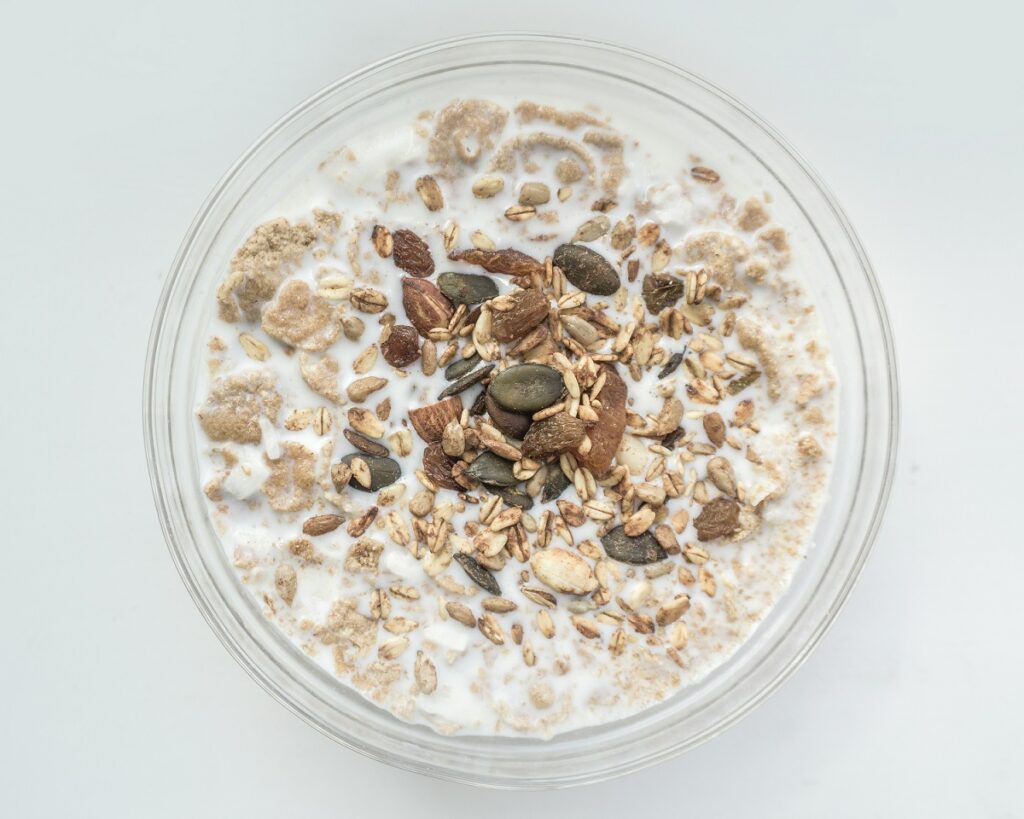Digestion is the process by which your body breaks down food into nutrients that can be absorbed and utilized. It involves several organs, including the mouth, stomach, intestines, and liver, working together to convert food into energy. However, various factors, such as diet, stress, and lifestyle, can negatively impact digestive health. So, Improving digestion is essential for overall health and well-being. A well-functioning digestive system ensures that your body efficiently processes food, absorbs nutrients, and eliminates waste. Here’s an in-depth guide on 12 Home Remedies to improve Digestion suggested by Mohit Tandon Chicago:
1. Stay Hydrated
Hydration is foundational for healthy digestion. Water helps break down food so that nutrients can be absorbed efficiently. When you’re well-hydrated, your digestive system functions optimally, reducing the chances of constipation. Aim for at least eight 8-ounce glasses of water daily, adjusting based on your activity level and climate. Herbal teas, particularly those made from peppermint or ginger, can also promote digestive health. They help soothe the stomach, reduce bloating, and relieve discomfort.

2. Incorporate Probiotics
Probiotics are beneficial bacteria that play a vital role in maintaining gut health. Foods rich in probiotics, such as yogurt, kefir, sauerkraut, and kimchi, can help balance the gut microbiome. This balance is crucial for digestion and can alleviate symptoms of irritable bowel syndrome (IBS) and other digestive disorders. Including these foods in your daily diet can enhance nutrient absorption and improve overall digestive function. – Mohit Tandon Chicago
3. Increase Fiber Intake
Fiber is essential for a healthy digestive system. It adds bulk to your stool, helping it pass more easily through the intestines. There are two types of fiber: soluble and insoluble. Soluble fiber, found in foods like oats, apples, and beans, can help regulate digestion, while insoluble fiber, present in whole grains and vegetables, aids in preventing constipation. Aim to include a variety of fiber-rich foods in your diet to support regular bowel movements and enhance digestive health.

4. Ginger for Digestion
Ginger has been used for centuries as a natural remedy for digestive issues. Its active compounds, such as gingerol, have anti-inflammatory properties that can help soothe the stomach. Ginger is particularly effective against nausea, bloating, and gas. You can consume ginger in many forms—fresh, as a tea, or in cooked dishes. Adding a few slices of fresh ginger to boiling water makes a soothing tea that can aid digestion.
5. Peppermint for Relief
Peppermint is well-known for its soothing effects on the digestive system. The menthol in peppermint has antispasmodic properties, which help relax the muscles of the gastrointestinal tract. This can relieve symptoms of indigestion and bloating. Drinking peppermint tea after meals can provide relief from discomfort, or you can chew on peppermint leaves for a refreshing digestive aid.
6. Mindful Eating
Mindful eating involves paying attention to the experience of eating—notice the flavors, textures, and aromas of your food. This practice can enhance digestion by encouraging slower eating and better chewing. When you eat slowly, you give your body time to signal when it’s full, which helps prevent overeating. Try to eliminate distractions, such as television or smartphones, during meals to focus entirely on your food. – Mohit Tandon Chicago
7. Apple Cider Vinegar
Apple cider vinegar (ACV) has gained popularity as a digestive aid. It is believed to increase stomach acidity, which can enhance the digestion of proteins and improve overall gut health. Mixing a tablespoon of ACV with a glass of water and consuming it before meals can stimulate digestive enzymes. However, it’s important to dilute it to protect your tooth enamel from the acidity.
8. Regular Physical Activity
Engaging in regular physical activity is vital for maintaining a healthy digestive system. Exercise stimulates the muscles in your digestive tract, promoting regular bowel movements and reducing constipation. Activities such as walking, jogging, or yoga can enhance digestion and alleviate bloating. Even simple movements after meals, like taking a leisurely walk, can help facilitate digestion.

9. Herbal Remedies
Various herbs can support digestive health. Chamomile, for example, is known for its calming properties and can help relax the digestive muscles. Fennel seeds can reduce bloating and gas, while coriander can aid in digestion and improve appetite. You can brew herbal teas or incorporate these herbs into your meals to harness their digestive benefits.
10. Avoid Overeating
Overeating can lead to discomfort, bloating, and indigestion. To prevent this, practice portion control and listen to your body’s hunger cues. Eating smaller, more frequent meals throughout the day can help maintain energy levels and prevent the discomfort associated with large meals. Additionally, taking breaks between bites can allow your body to recognize when it’s full.
11. Limit Processed Foods
Processed foods often contain additives and preservatives that can disrupt digestion. They are typically low in fiber and high in unhealthy fats and sugars, contributing to digestive issues. Focus on whole, unprocessed foods such as fruits, vegetables, whole grains, and lean proteins. This shift can significantly improve digestion and overall health.
12. Establish a Routine
Establishing a regular eating routine can enhance digestive health. Eating meals at consistent times helps regulate your body’s internal clock and promotes efficient digestion. This routine can also aid in preventing indigestion and irregular bowel movements. Additionally, try to avoid eating late at night to allow your digestive system time to rest.
